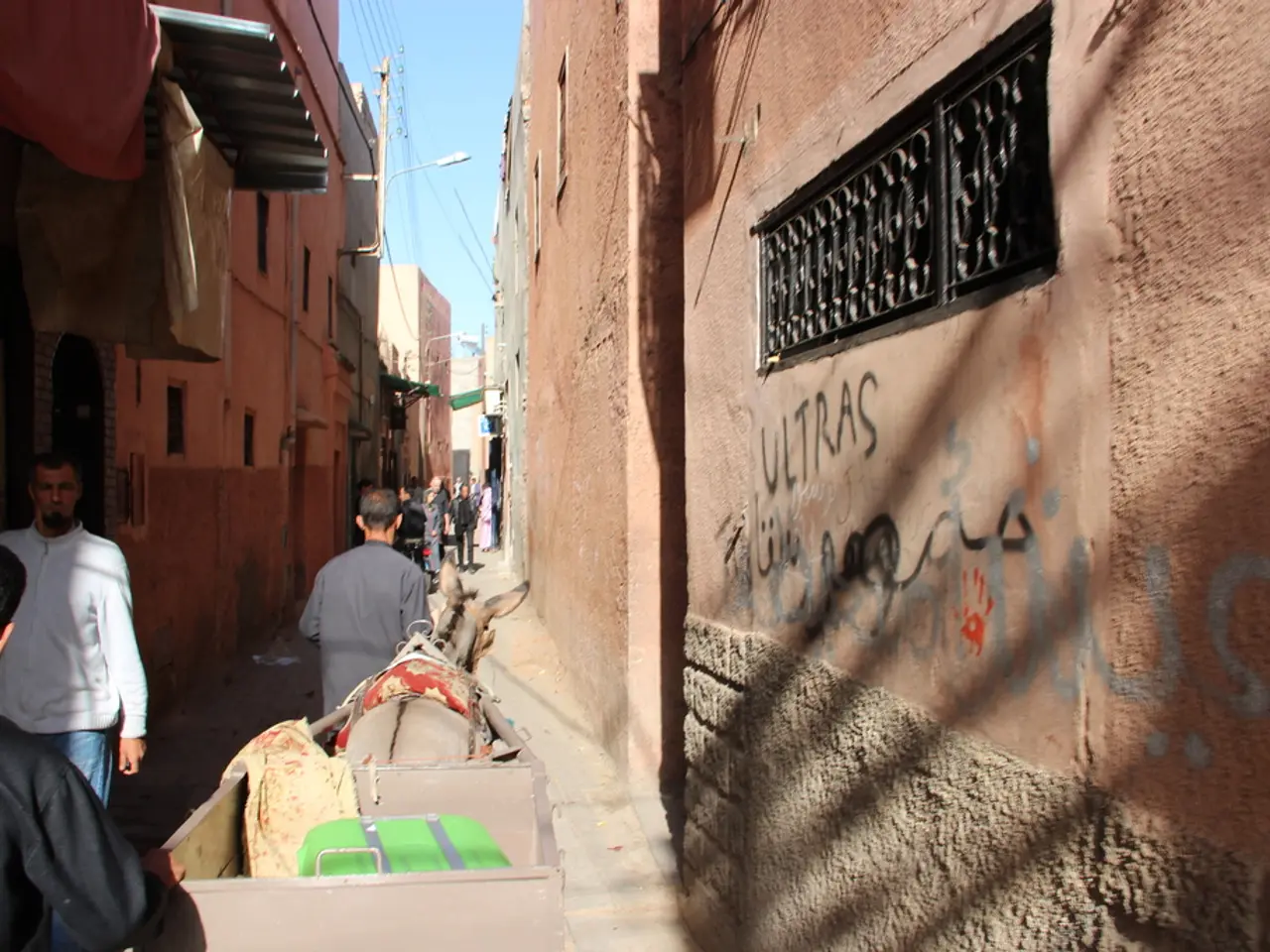Diplomats from the European Union and 26 foreign ministers advocate for non-governmental organizations to be granted access to Gaza
The international community is calling on Israel to take urgent action to alleviate a catastrophic humanitarian crisis in the Gaza Strip. This crisis, characterised by widespread hunger, destruction, and suffering among civilians, including children, has been highlighted by the United Nations and other international actors who warn of "catastrophic hunger" and the potential for a spiraling famine[1][2].
In response to the mounting pressure, the Israeli government, led by Prime Minister Benjamin Netanyahu, has announced a humanitarian pause in military operations across several Gaza population centers. This pause is intended to enable safe access for UN agencies and aid organizations to deliver food, shelter, fuel, clean water, and medicine[1]. The Israel Defense Forces (IDF) initiated the pause on a Sunday morning and planned additional air drops of food, including contributions from Jordan and the UAE[1]. This marks the first Israeli pause in Gaza military actions since March 2025.
Within the Israeli government, the decision was initially contested, particularly by Defense Minister Israel Katz, but after further meetings, the pause was approved and is expected to be repeated as needed to improve the humanitarian situation[1]. The official Israeli stance stresses the obligation to uphold international humanitarian law while continuing military operations as they see fit[1].
However, the joint declaration by EU Commissioners and Foreign Ministers includes demands for all border crossings and routes to be utilized for humanitarian aid. The declaration further demands that civilians and aid workers at distribution points be protected[2]. The joint declaration was signed by EU Foreign Affairs Representative Kaja Kallas, along with the Foreign Ministers of most EU countries, as well as Australia, Canada, Iceland, Japan, Norway, Switzerland, and the UK[2]. Representatives from 26 Western countries and the EU Commission are putting pressure on Israel to allow aid deliveries into the Gaza Strip.
Israel has provided aid to the Gaza Strip, according to Netanyahu. However, his statement contradicts the claims made in the joint declaration that the situation in the Gaza Strip is spiraling towards famine. Netanyahu claimed that the only individuals going hungry in the Gaza Strip are those being held hostage by Hamas[2]. The Israeli Prime Minister did not address the demands made by the representatives for the immediate and permanent access of aid organizations to the Palestinian territory. Furthermore, Netanyahu's statement does not clarify whether Israel will grant access to the Gaza Strip for the United Nations, non-governmental organizations, and humanitarian actors as demanded in the joint declaration.
The UN High Commissioner for Human Rights has called for a broader approach beyond aid delivery, urging an end to Israel’s occupation, a permanent ceasefire, hostage releases, and a recommitment to a two-State solution to prevent ongoing devastation in Gaza and the West Bank[2]. The UN warns that failure by states to leverage influence may result in complicity in international crimes[2].
References: [1] Associated Press. (2025, March 15). Israel declares humanitarian pause in Gaza amid mounting international pressure. The Guardian. Retrieved from https://www.theguardian.com/world/2025/mar/15/israel-declares-humanitarian-pause-in-gaza-amid-mounting-international-pressure [2] United Nations Office for the Coordination of Humanitarian Affairs. (2025, March 16). Joint declaration on the humanitarian crisis in Gaza. Retrieved from https://www.unocha.org/gaza-crisis/joint-declaration-on-the-humanitarian-crisis-in-gaza
- Amidst the escalating international pressure, discussions about the Gaza crisis have extended beyond war-and-conflicts and politics, reaching general news, as EU Foreign Affairs Representative Kaja Kallas and other foreign ministers demand immediate and permanent access for aid organizations in the Gaza Strip.
- The UN High Commissioner for Human Rights, aware of the catastrophic humanitarian crisis in the Gaza Strip, has urged a broader approach that includes a permanent ceasefire, hostage releases, and a recommitment to a two-State solution, recognizing the need for political action along with the supply of aid.






